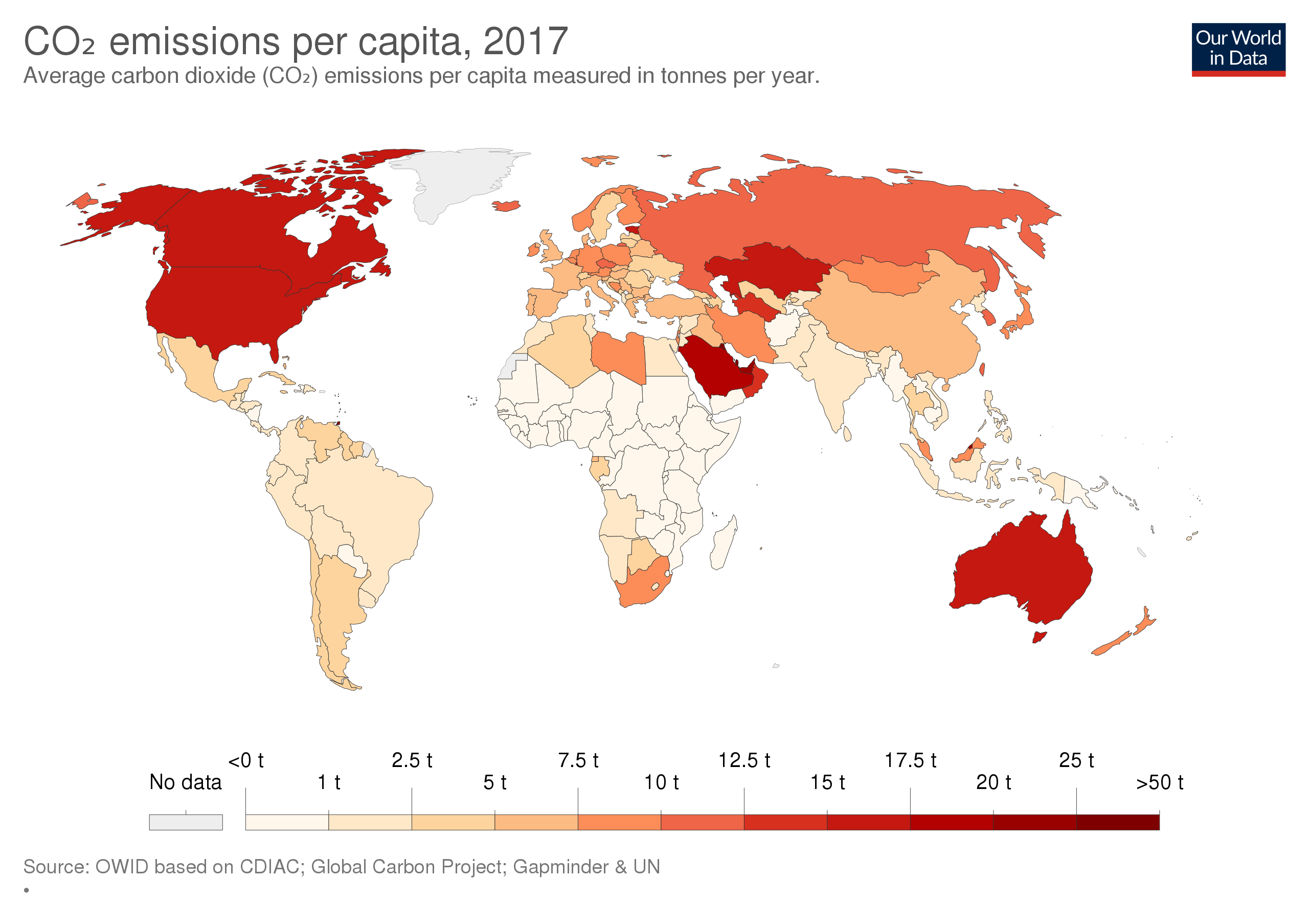Global Equity and Climate Adaptation
If you live in a wealthy, highly-developed, technologically sophisticated country like the US, it is fairly easy to see how we will be able to adapt to climate change without undue suffering. Of course, we will suffer the consequences of severe storms and droughts, and we will eventually have to move a lot of people and activities from places like the Mississippi Delta region. But these are not existential threats of the type faced by the millions of people living on less wealthy low-lying islands, who will eventually see their island homes submerged. And many other nations do not have the technological abilities, wealth, and global influence to make the necessary adaptations.
This is very much a problem related to the tragedy of the commons mentioned in Module 11. The commons, in this case, is the global atmosphere, which is shared by all, and everyone has the freedom to put as much CO2 into the atmosphere as they want (unless they were to be truly restricted by something like the Paris Agreement. Everyone feels the effects of the total concentration of CO2, but not everyone contributes equally to this effect. But individual actors (countries) have little motivation to halt their CO2 emissions (which costs money) for the benefit of others. The only way to solve these kinds of problems is through regulation. But regulation does not help us with the question of how to deal with the problems associated with the climate change that will occur in the future. The map below shows that countries most impacted by climate change are not those emitting the majority of the CO2.

Try to place yourself for a moment in the shoes of a Maldive Islands citizen or someone in Fiji or the Solomon Islands. The sea level is rising and will continue to rise in the future due to global warming, and your country will no longer be viable for living — you will have to migrate and relocate somewhere else. But where? And how will you find the resources to make this move — acquiring a new house, a new job? (If you own a home or property, it will obviously be worthless.) You might very well ask yourself — whose fault is this? And you might feel that the blame lies primarily with the big emitters of CO2 — the big, wealthy nations of the world. But how can you get them to help you with your problem? What power do you have?
You can see that this is a tricky problem. There is a big question/problem of equity when it comes to climate change — the biggest emitters of CO2 bear the most responsibility for climate change, and these are also among the wealthiest nations. These big emitters are the ones best positioned to successfully adapt to climate change; they are also the ones with the resources to help some of the poorer victims of climate change. Should these big emitters help to bear the costs of climate adaption for the less wealthy nations that have emitted much smaller shares of CO2 into the atmosphere? If so, how could they be induced to do so? These are important questions, and they do not have good answers or widely-accepted answers at this point. Some people are advocating a globally assessed carbon tax, in which different countries would be taxed at different rates based on their historical emissions histories; the money would then be used to help with adaptation and relocation where necessary. But this is just a proposal. And to implement it would require the kind of international agreement that has proven elusive so far with respect to climate change.
This is very clearly an important aspect of climate change and our future that is in need of a solution.
